Inside Innoway, China’s $36 million government-backed startup village
Beijing, China
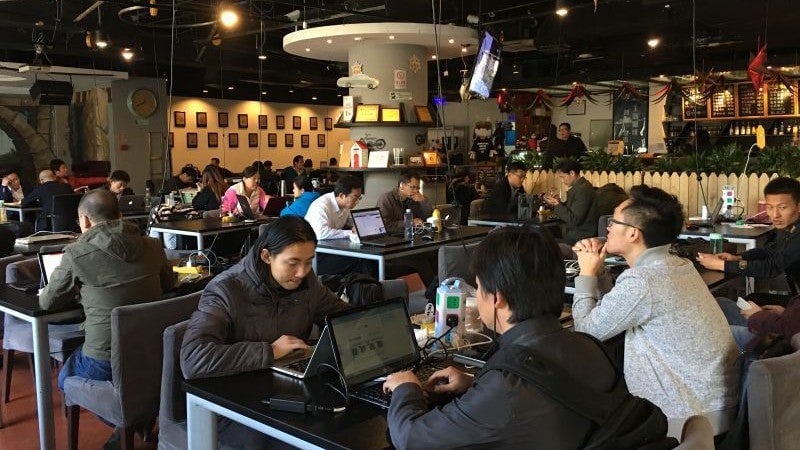

Beijing, China
In just two years, Beijing city planners transformed a no-frills walkway in the city’s northwest into a symbol of China’s internet ambitions, trading paperbacks for MacBooks and creating a thriving hub of startups and incubators.
Innoway is a 200-meter strip that houses over 300 startups in a mixture of investor offices, cafes, and “incubators”—dedicated work spaces that provide internet, electricity, and desks. It’s located in Beijing’s tech-heavy Zhongguancun neighborhood, itself known for housing Baidu, Tencent, and other Chinese internet companies since the early 2000s.
The street was once known as Haidian Book City, where a handful of modest bookstores ran modest businesses. But in 2011 local entrepreneur Su Di and other Chinese investors, attracted by the cheap rent, opened Cheku Cafe, a coffee shop specifically for internet companies to mingle inside. More investors followed suit, opening startup-themed cafes and branch offices.
In 2013, the street underwent an official renovation thanks to a government-backed investment (link in Chinese) of over 200 million yuan (about $36 million). It’s now home to some of China’s top-tier investors and internet companies, like job-hunting site Lagou and Uber competitor Yongche. Chinese premier Li Keqiang has also visited Innoway personally, a symbolic nod of approval from the nation’s highest authorities.

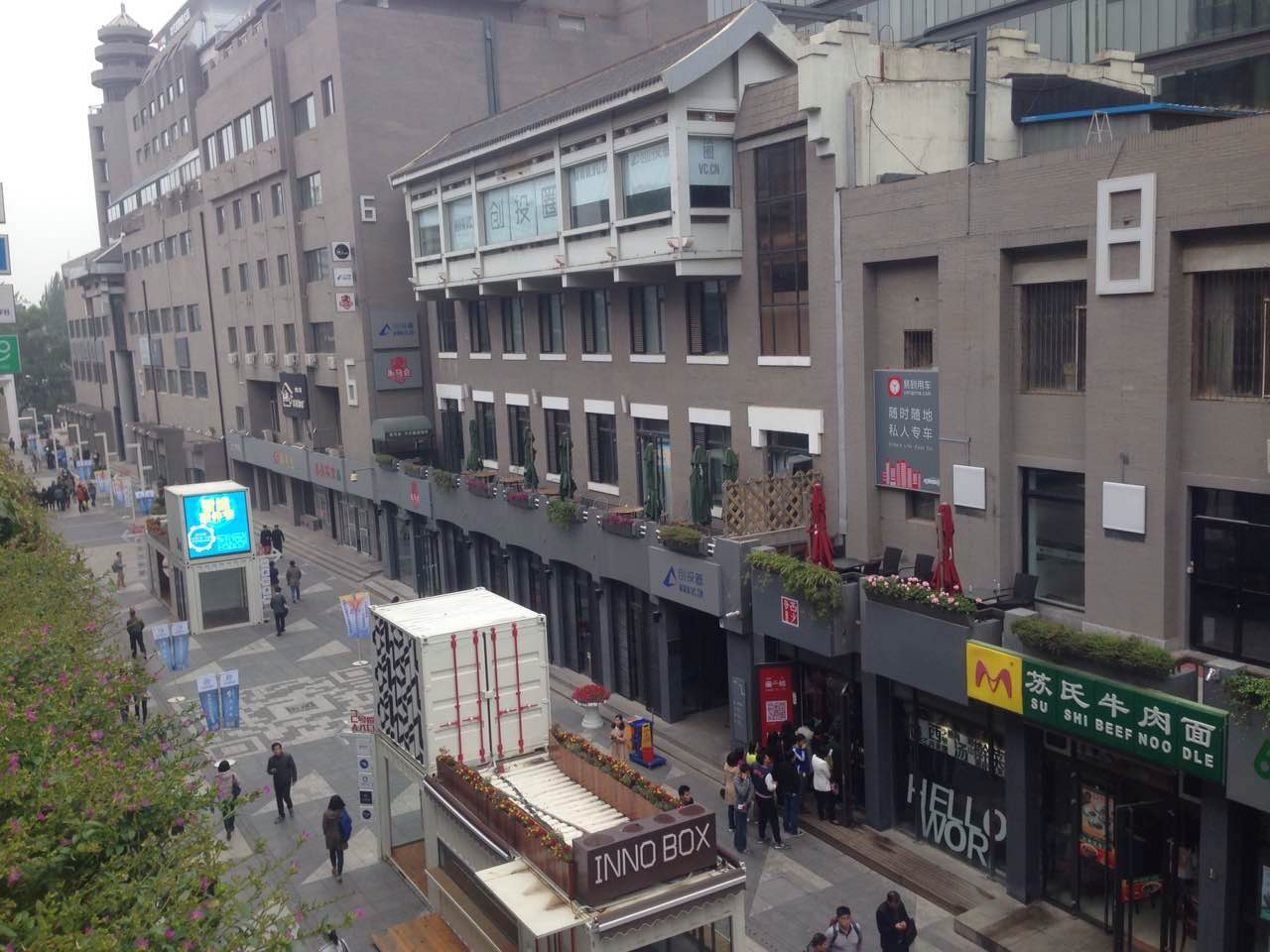
Startup fervor has swept China, thanks in part to the success of the country’s internet giants, including Alibaba, Baidu, and Tencent, behemoths in e-commerce, search, and social respectively. Each of these giants employ tens of thousands of people, a situation that has created networks of alumni who go on to start their own companies (paywall). Venture capital funding for Chinese startups nearly tripled between 2013 and 2014 to over $15.5 billion. Of the 125 startups around the world currently valued at over $1 billion, 18 hail from China (paywall)—more than any other country besides the United States. But these giants once started small, just as new hopefuls are forming now in Innoway’s workspaces.
Incubators, the companies that nurture startups, are the heart of Innoway—there are about 40 here, depending on your definition. Most make money through some combination of rent, consulting services, or taking equity stakes. They vary in style. Ranking among the more serious is 36Kr, borne out of a popular Chinese tech blog. It’s space is open only to companies it has vetted, and sometimes funded. Coders and product managers work in near-silence, encased in a cement chill.
In a cafe called 3W Coffee, meanwhile, the sense of startup spirit is hard to miss. Framed portraits of successful Chinese entrepreneurs dot the walls, which is open to the public. The second-floor events space is a rush of presentations and group meetings, and 3W’s incubation teams work on in an office that resembles a stereotypical sushi-and-bean-bags Silicon Valley workspace.
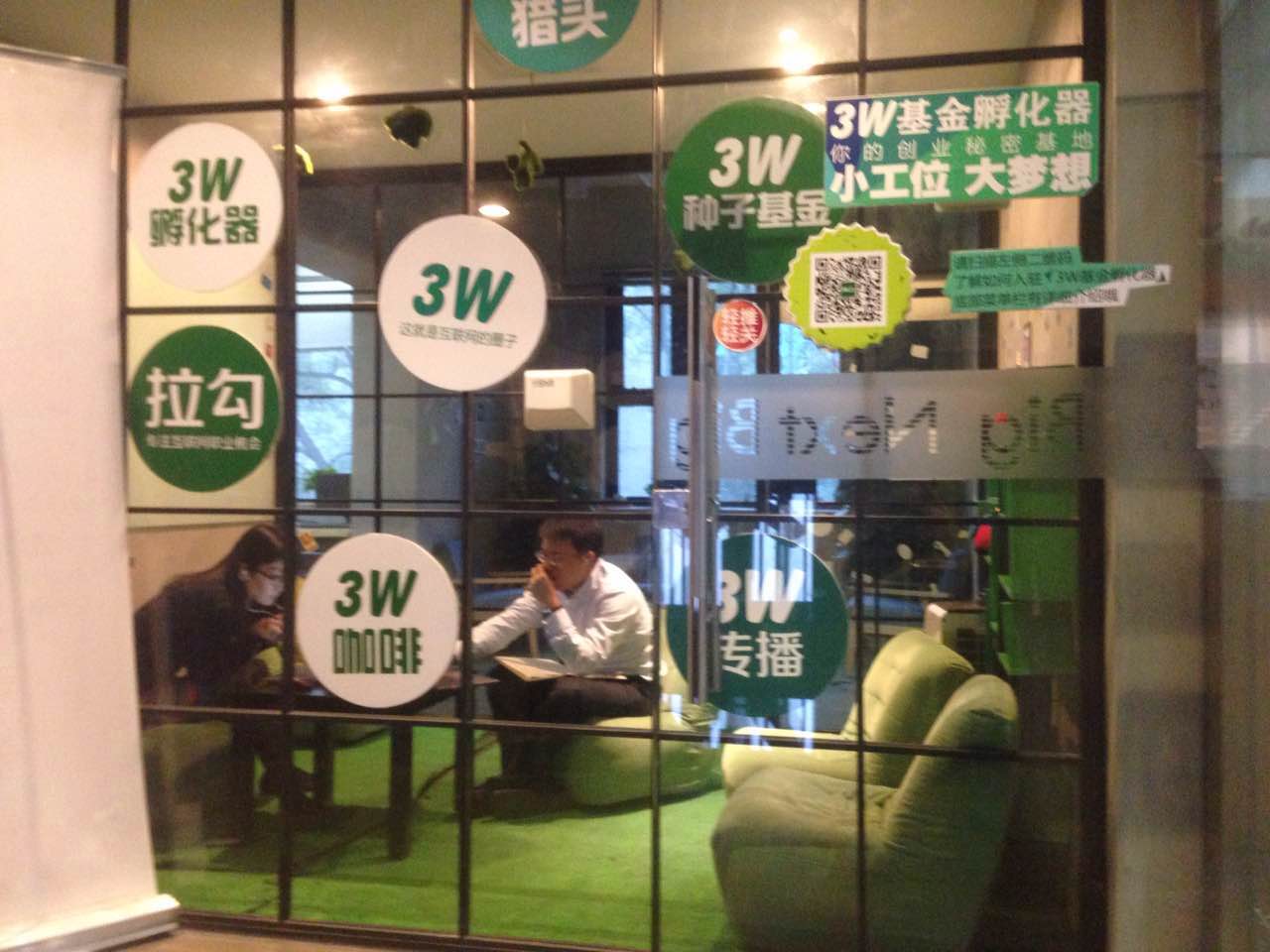
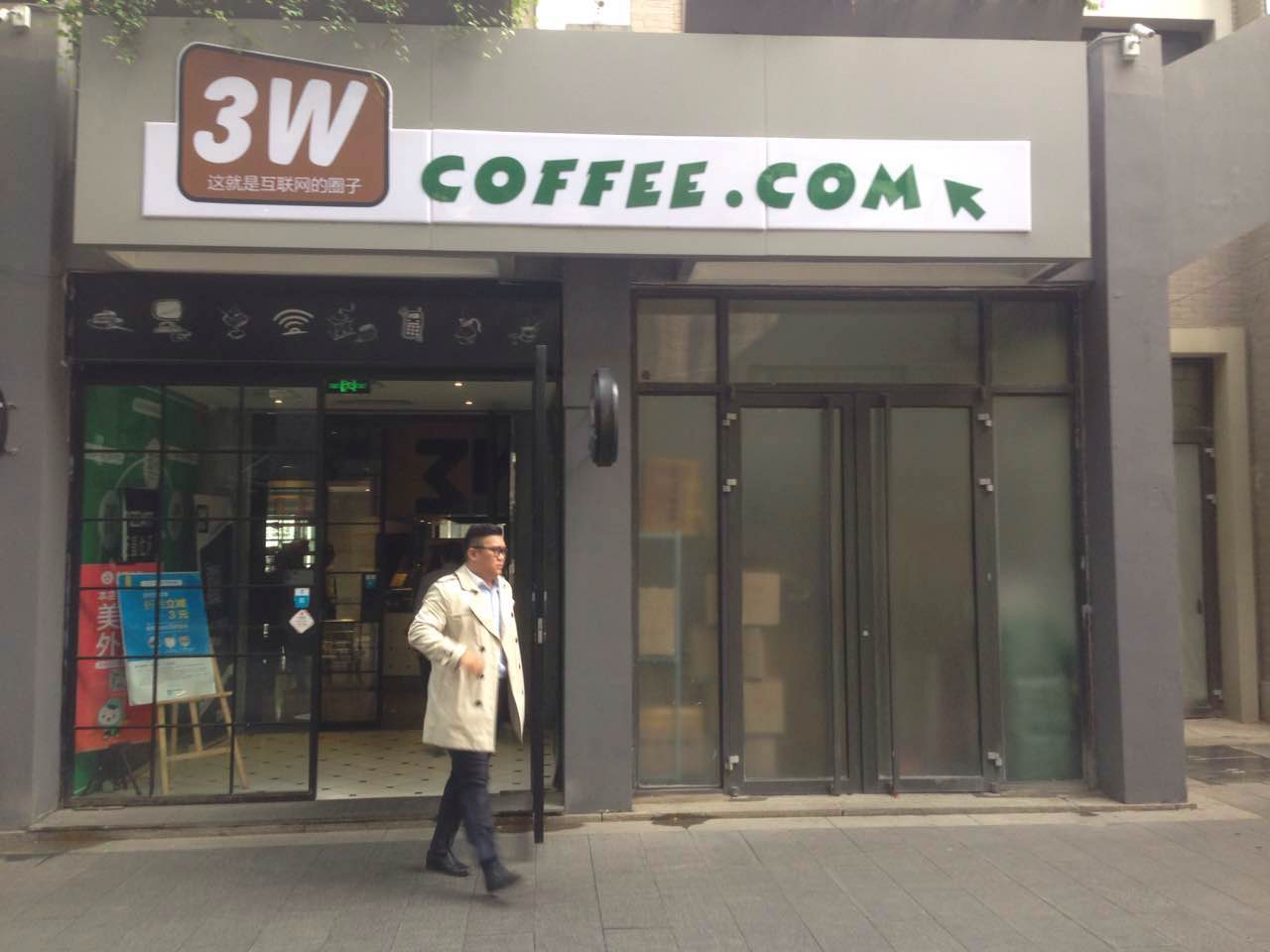
Most of the people taking up table space at Innoway are men in their twenties and thirties, just like in most tech communities, though women and grey hairs are not entirely absent from the scene. It’s hard to separate the big shots from the small fries based on one’s attire, as everyone dresses casually (and warmly for the Beijing autumn).
When it comes to helping score an investment, by most accounts, the incubator spaces in Innoway operate a lot like startup hubs anywhere. But the companies themselves may be more cutthroat. One founder tells Quartz that it’s not unusual to see startups jump from space to space in order to avoid paying rent for a real office—something Silicon Valley’s incubators, often entrenched in petty rivalries, would be horrified by.
The companies dwelling here span the spectrum of China’s startup talent pool. On the elite side, 36Kr’s incubator receives applications from approximately 3,000 startups every three months, but only 30 teams are selected to work inside the company’s space until their 90-day term expires.
Li Gouxing, who has been in the space for about eight weeks, returned to China after interning at Facebook and obtaining a master’s degree at Stanford. He recently obtained under 1 million yuan in funding to build a job-hunting app. “China’s market is less mature than the US, which means there are more opportunities,” says Li. “I fit the culture here better and I have more resources here.”
Wang Shuyue, a 24-year-old originally from Yunnan province, turned down job offers from several of China’s largest internet companies to go study in Taiwan and the United States. But after finishing one year of her master’s program at the University of Illinois Champaign-Urbana, she decided to return to China and join a startup with her friends. She’s now making about 5,000 yuan a month ($784) from investors that are backing her dating app.
“If I got a job in China I would work at Alibaba or Baidu or one of those companies. I would have done something related to data analysis, but [at the time] I knew that I wanted to work more closely with products,” she tells Quartz. “I’m trying to learn many things at once and make up for [the skills] I lack,” she adds.

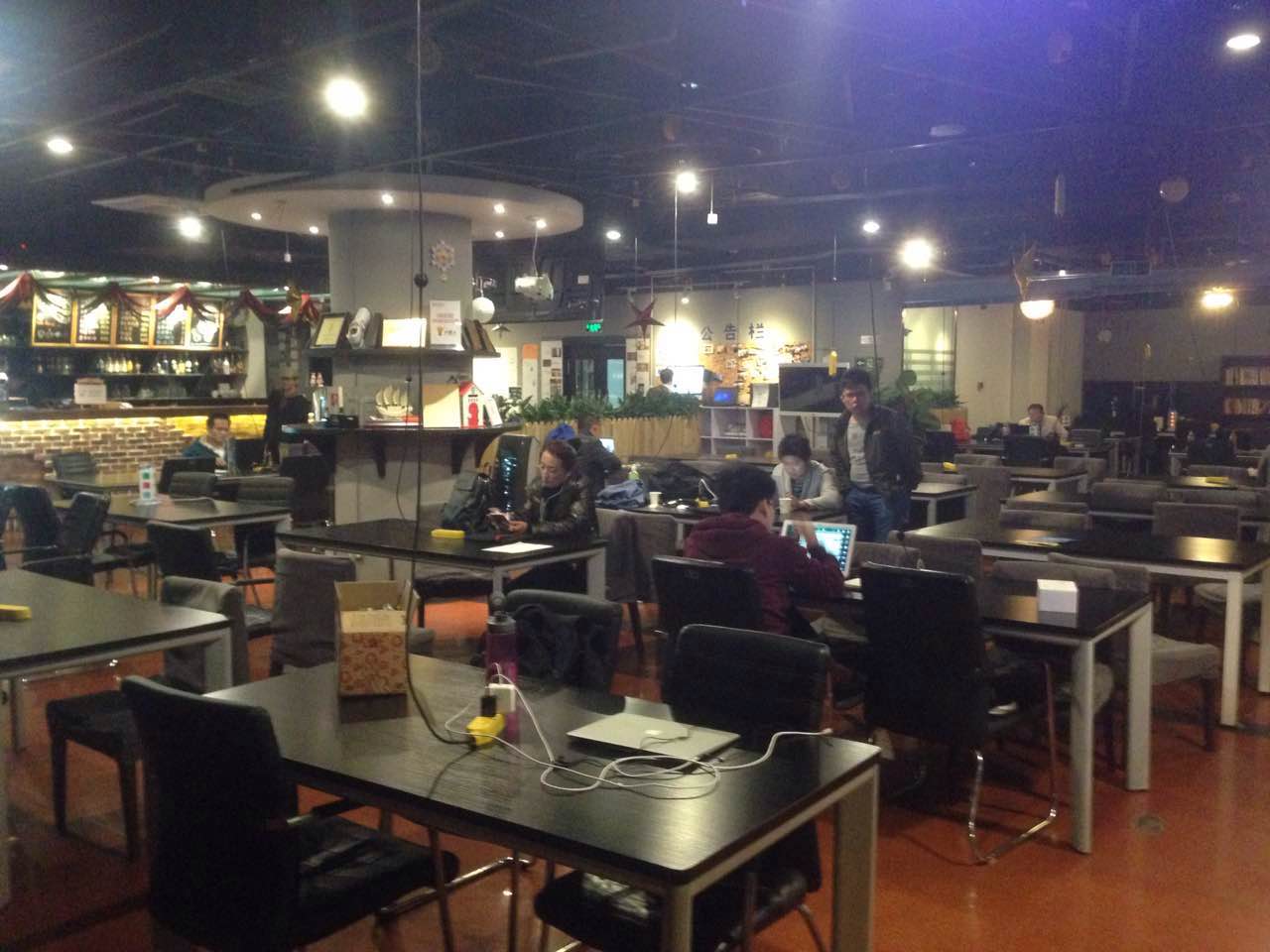
Just like in Silicon Valley, wantrepreneurs abound at Innoway. While the strip attracts plenty of the country’s best talent, it’s also a haunting ground for the loiterer-hustler type. After dark, once Cheku Cafe’s serious coders head home, the space fills with perpetually aspiring “founders” who look like they might be more at home at a counterfeit Apple store than a $36 million hacker hub. Instead of hawking fried noodles or fake Gucci watches, they’re hunting for an investor who will back their new electric bike—to be manufactured in Japan, through a friend of a friend who knows the Sony CEO.
Innoway is a reminder that China’s startup culture, like the US, contains equal parts ambition and excess. After all, does any city, even one as big as Beijing, need more than two or three “incubators”? A popped bubble in China’s already-frothy China startup investments could spell the end for Innoway. But for now, the scene runs on caffeine-fueled, government-subsidized optimism.
“The internet goes in waves,” says Peter Zhang, who runs business development at Cheku Cafe. “If it starts to slow down, maybe these incubators will face pressure to make money. But as long as they are hard-working and they plan long-term, they will be OK.”